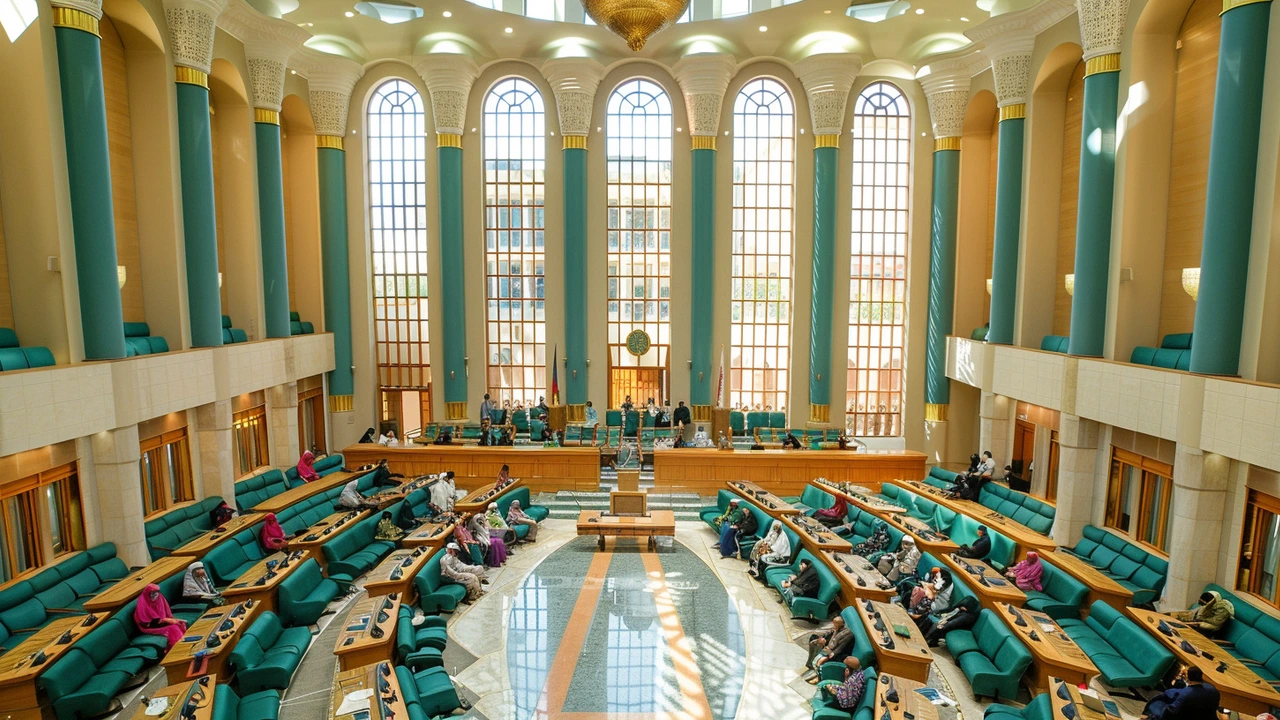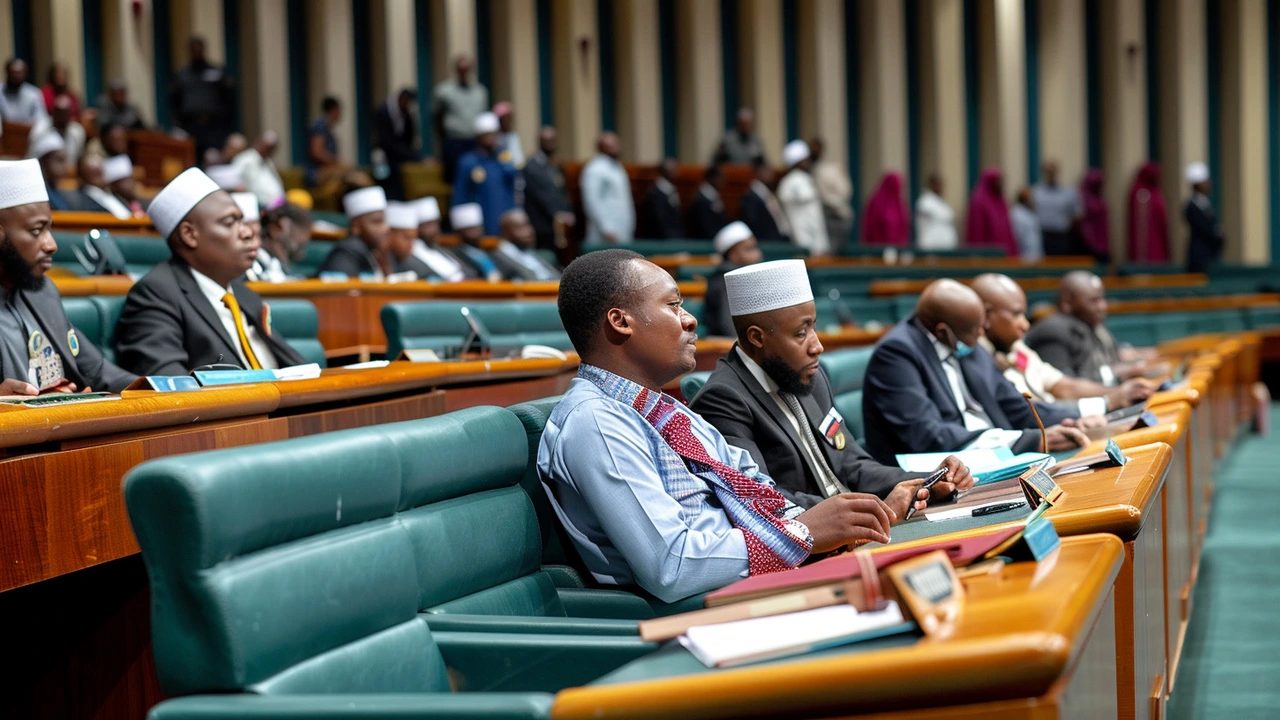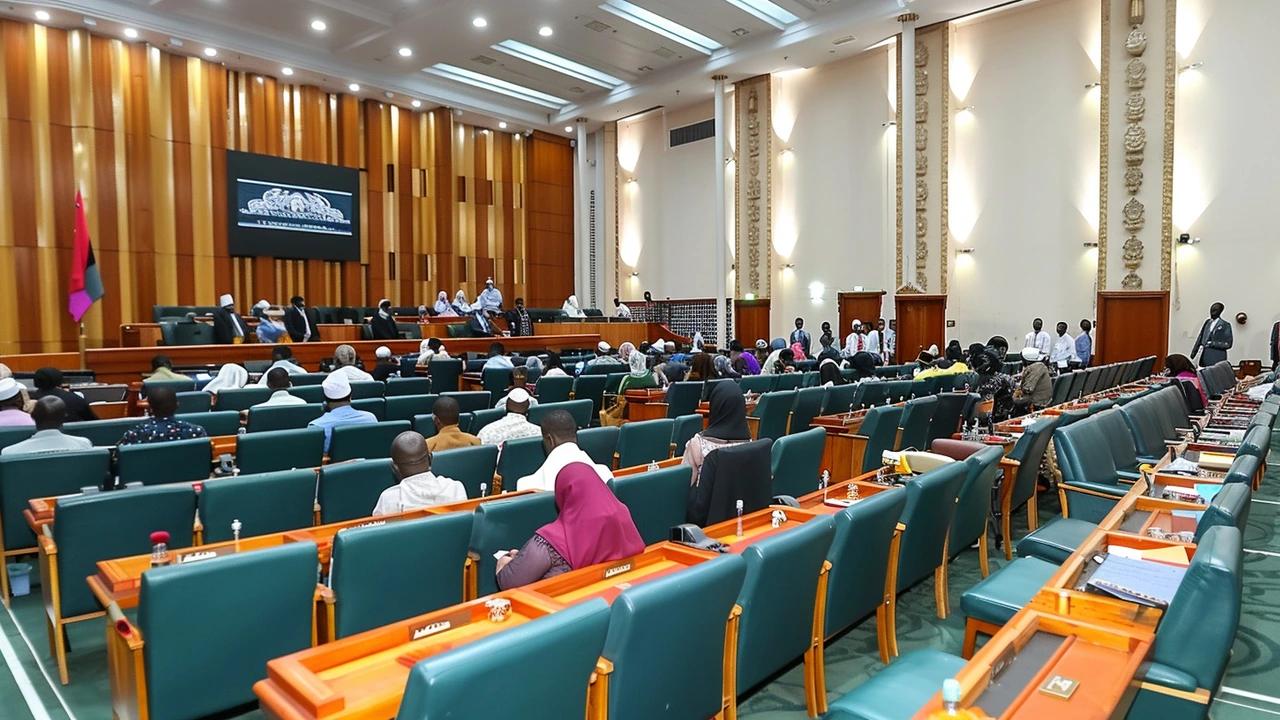 Jun, 1 2024
Jun, 1 2024
The Nigerian National Assembly is currently considering a landmark bill that could significantly alter the nation's structure of governance. Titled ‘A Bill for an Act to Substitute the Annexure to Decree 24 of 1999 with a New Governance Model for the Federal Republic of Nigeria,’ this proposed legislation seeks to replace the country's current 1999 Constitution with a more autonomous regional government system.
The architects of this bill argue that the current constitution, enacted by the military regime without the consent of the Nigerian populace, lacks authenticity and does not adequately represent the interests of the people. They contend that the proposed federal/regional governance model would empower ethnic blocs to manage their affairs independently, enhancing political inclusivity and self-determination.
The bill outlines a comprehensive restructuring framework, which includes the formation of provinces, divisions, and districts within states. This system, as proposed by the bill's sponsors, is intended to afford each ethnic nationality and regional group more autonomy over their domestic governance, potentially fostering a more harmonious and responsive political environment.
One notable facet of the bill is its provision for a federal administration overseeing regional territories, alongside a distinct federal capital territory. This model bears resemblance to Nigeria's governance structure prior to the civil war, which many advocates argue allowed for greater regional development and political stability.
Moreover, this legislative proposal emphasizes the reallocation of power and resources, which its supporters believe will address longstanding grievances and developmental disparities among Nigeria's diverse ethnic and regional groups. By enabling local governance structures to thrive, proponents argue that the bill will invigorate economic growth and cater to the unique needs of each region.
The bill's path towards potential approval involves debate and ratification by the National Assembly, followed by a nationwide referendum. If passed, this act would be subject to a 'yes or no' vote by the Nigerian people, a process scheduled to culminate by October 1, 2024. This direct engagement with the citizenry underscores a democratic process aimed at legitimacy and broad-based support.
Understanding the Rationale Behind the Bill
The sponsors of the bill are vocal about their motivations. They argue that Nigeria's current centralized governance model has been plagued by inefficiency, corruption, and discord. The bill aims to address these issues by decentralizing power and providing more autonomy to regional governments. This paradigm shift is expected to mitigate bureaucratic delays and foster accountability, as local governments will be directly answerable to their constituents.
Historical Context and Precedents
Historically, Nigeria operated under a regional government model during the First Republic (1960-1966). This period is often cited by proponents as a time of relative political and economic stability, wherein each region could focus on its development priorities. The recollection of this era has become a rallying point for those advocating a return to regionalism, suggesting that a decentralized system could be more suited to Nigeria's complex socio-political fabric.
However, critics argue that a return to regional government could exacerbate ethnic tensions and lead to fragmentation. They caution that such a structure might empower regional leaders at the expense of national unity, potentially reigniting secessionist movements that have historically plagued the country.

The Proposed Governance Structure
The new governance model proposed by the bill divides Nigeria into regional territories, each with significant control over its affairs. This structure is designed to grant regions the power to manage resources, law enforcement, education, and health services, among other sectors. The federal government, in this model, retains control over national defense, foreign policy, and monetary policy, ensuring cohesion at the national level.
This division of powers aims to create a more balanced and fair distribution of resources, addressing the economic disparities that have long been a source of contention. By allowing regions to harness and manage their local resources, the bill supporters believe it will foster economic growth and reduce dependence on federal allocations.
Regional Autonomy and Self-Determination
A key theme of the bill is the right to self-determination and self-government for Nigeria’s diverse ethnic groups. This proposal underscores the importance of local governance structures in handling community-specific issues and aspirations. Regions, under the bill, would have the autonomy to enact policies and programs that resonate with their unique cultural, social, and economic contexts.
Despite the potential benefits, the transition to such a system poses substantial challenges. These include the risk of uneven development, where wealthier regions might progress faster than less endowed areas, potentially leading to inequality. Additionally, there is the concern of entrenched local elites monopolizing power and resources, which requires stringent checks and balances to avert.

Navigating the Path Forward
The bill’s proponents are keen on addressing these concerns through robust legislative frameworks and institutional reforms. They advocate for the establishment of independent bodies to monitor regional governance and ensure transparency. Moreover, the bill proposes revenue-sharing mechanisms to equitably distribute national wealth and support less economically viable regions.
The upcoming referendum represents a pivotal moment for Nigerian democracy, offering citizens the chance to voice their stand on the proposed governance changes. This process is intended to foster a sense of ownership and participation among the populace, reinforcing the democratic foundations of the country.
Public Discourse and Societal Impact
As the debate unfolds, public opinion remains divided. Supporters herald the bill as a bold step towards true federalism and self-determination, while opponents view it as a potential catalyst for fragmentation. The discourse has ignited discussions on national identity, resource allocation, and the future of Nigeria’s political landscape.
This ongoing conversation presents an opportunity for Nigerians to reimagine their governance model in a way that promotes unity, efficiency, and responsiveness. However, the success of this endeavor will largely depend on the ability of the National Assembly to craft a bill that balances the complex interests of its diverse population while fostering national unity.
The fate of this bill remains uncertain, and its journey through the legislative process will undoubtedly shape the future trajectory of Nigeria. Whether it will usher in an era of regional autonomy and revitalized governance or encounter insurmountable obstacles, one thing is clear: the conversation it has sparked is a necessary and critical reflection on the nation’s path forward.

Christian Barthelt
June 1, 2024 AT 18:32The bill's authors conveniently label the current 1999 Constitution as a "military imprint," yet they ignore the fact that it has survived multiple democratic transitions.
Their argument rests on the premise that any document not directly ratified by a popular referendum is inherently illegitimate, which is a textbook example of a straw‑man.
In reality, legitimacy derives from continuous acceptance by the governed, not from the circumstances of its drafting.
Moreover, the proposed regional model is not a novel invention; it mirrors the First Republic’s ill‑fated structure that precipitated civil war.
By invoking nostalgia for a period marked by ethnic rivalries and secessionist threats, the sponsors display a selective memory.
The draft also suffers from ambiguous terminology-terms such as "province" and "division" are used interchangeably, which would create jurisdictional chaos.
A well‑crafted constitution must employ precise language; otherwise, the very legal system it seeks to uphold becomes a minefield of interpretation.
The authors claim that decentralization will eradicate corruption, yet central corruption often stems from weak oversight, not from concentration of power.
Decentralization without robust accountability mechanisms merely disperses opportunities for graft across more layers of government.
The bill's revenue‑sharing formula is sketched in broad strokes, offering no safeguards for poorer regions that lack a fiscal base.
History teaches us that resource‑rich states can dominate federal allocations, leaving peripheral areas impoverished.
The referendum schedule-targeting October 2024-seems rushed, given the magnitude of the constitutional overhaul.
Voter education on such a complex restructuring cannot be accomplished in a few months without risking misinformation.
Additionally, the draft omits explicit protections for minority rights within the new regional entities, which is a glaring oversight.
In sum, while the desire for greater regional autonomy is understandable, the proposed bill fails to address the constitutional, fiscal, and societal implications with the rigor that such a transformation demands.
Ify Okocha
June 1, 2024 AT 21:18Your breakdown is riddled with hyperbole; the real issue is that the current power brokers have been siphoning wealth for decades, and a regional model simply relocates their wallets. The so‑called "jurisdictional chaos" is a convenient excuse to keep the elite in charge of the narrative. By ignoring the grassroots demand for self‑determination, you betray the very people you claim to defend.
William Anderson
June 2, 2024 AT 00:05Honestly, the whole proposal reads like a fever dream penned by bureaucrats who haven't set foot outside Abuja. If you correct the egregious misuse of "province" versus "state," perhaps the draft would at least look respectable. Yet the drama of re‑creating a fractured federation is far more captivating than any sober policy analysis.
Sherri Gassaway
June 2, 2024 AT 02:52One might argue that the very concept of governance is a metaphorical contract between the collective soul of a nation and its institutional embodiments. When that contract is rewritten, it forces us to confront the paradox of unity within diversity, a tension that has haunted political thought since antiquity. Yet the proposal skims over the ethical dimension of regional sovereignty, reducing it to a mere administrative tweak.
Milo Cado
June 2, 2024 AT 05:38The prospect of granting regions more control could indeed spark a renaissance of local innovation 🌱. By fostering competition among provinces, we may see more tailored solutions to education, healthcare, and infrastructure challenges. Let us hope the legislative safeguards are robust enough to prevent new forms of inequality 😊.
MONA RAMIDI
June 2, 2024 AT 08:25I can feel the blood pressure rising just reading these lofty promises-it's all smoke until the poorest districts see actual money flow. Stop sugar‑coating the mess; this is a power grab dressed in altruism!
grace riehman
June 2, 2024 AT 11:12hey folks, just wanted to point out that this whole thing could be a chance for all the diff cultures in nigeria to showcase their heritage. if we make sure the new regions get equal voice, the whole country can vibe together.
Vinay Upadhyay
June 2, 2024 AT 13:58Wow, what a nuanced analysis-said no one ever. Your optimism is adorable but completely oblivious to the fact that power structures rarely change because someone spells "vibe" incorrectly.
Eve Alice Malik
June 2, 2024 AT 16:45There's a ton of data on how decentralization works in other African states, and many of those cases show mixed results. It’ll be interesting to track metrics like school enrollment and health outcomes once the regions start managing their budgets.
Debbie Billingsley
June 2, 2024 AT 19:32Any attempt to fragment the federation threatens the indivisible soul of Nigeria; the nation must remain united under a single sovereign authority to preserve its strategic interests.
Patrick Van den Berghe
June 2, 2024 AT 22:18I see the proposed split as an overcomplication
Josephine Gardiner
June 3, 2024 AT 01:05Your observation succinctly captures the procedural concerns associated with the amendment process. A measured appraisal of the timeline indeed warrants further deliberation.
Jordan Fields
June 3, 2024 AT 03:52The draft lacks precision in defining fiscal responsibilities between federal and regional bodies.
Divyaa Patel
June 3, 2024 AT 06:38Behold, the quagmire of constitutional chaos-a kaleidoscope of ambitions that threatens to dissolve the very fabric of nationhood, yet some cling to it like moths to a fickle flame.